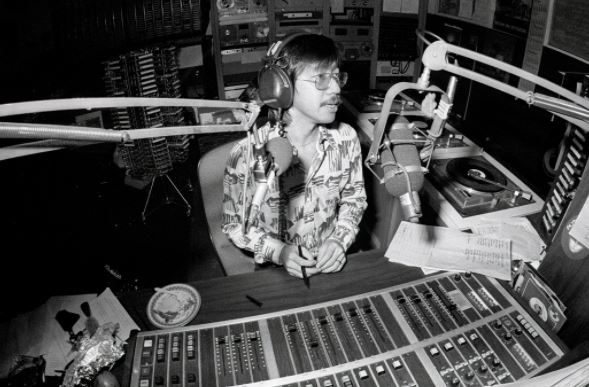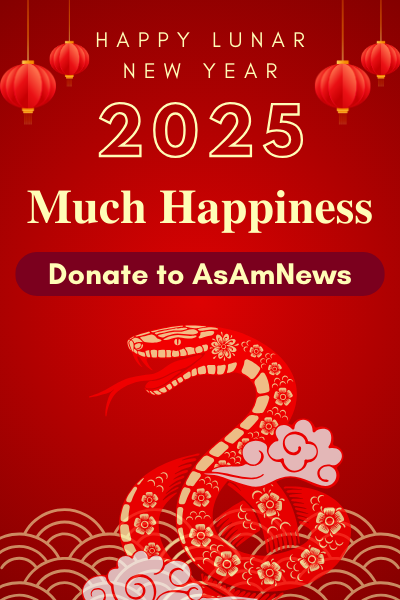By Louis Chan, AsAmNews Staff Writer
Music legends Elton John, Carlos Santana, and Quincy Jones agree. So does Ray Manzarek of The Doors and comedian/actor Steve Martin.
A Chinese American kid raised in Oakland Chinatown and born to Chinese immigrants would grow up to be arguably the most influential journalist in rock history.
It’s all documented in the new film debuting today at the Tribeca Film Festival, Like a Rolling Stone: The Life and Times of Ben Fong-Torres.
Producer and reporter Suzanne Joe Kai began her journey to chronicle Fong-Torres’ life more than 10 years ago. 120 or so film shoots later, her documentary is a fascinating star-filled trip down the music scene in the 60’s and 70’s.
Fong-Torres got his surname because his father Fong Kwok Seung changed his name to Torres to pose as a Filipino immigrant to get around the Chinese Exclusion Act. Fong-Torres joined Rolling Stone Magazine eight issues in in 1968 and would become its news editor the following year.
His interviews with some of music’s biggest names put him on the map and earned him the respect of some of the industry’s biggest superstars. Many wouldn’t agree to the interview unless Fong-Torres conducted it. His articles earned him the reputation of someone they could trust and someone who understood their music.
“Ben was writing at a time when it’s very, very rare at that moment in time, that music, new music was being made by individuals not corporately commissioned,” said Kai to AsAmNews. “They were making it to try to save the world. Honestly that was their voice.”
Decades later, Sir Elton reminisces about Rolling Stone and the role Fong-Torres played in building it. He says he still enjoys the magazine, but it hasn’t been the same since Fong-Torres left it in 1981.

He credits the trust he built to his own background as at ethnic minority.
“Perhaps they’re looking at me in some ways as an outsider. They’re outsiders as entertainers, whatever our culture might be, we’ve chosen this path and it’s not the usual road for most people. So I think that gives us a bit of connection,” he told AsAmNews.
The biggest moments in Like A Rolling Stone come when Fong-Torres reunites with some of those interviewees. All of those mentioned in this article so far also appear in the film.
“It was just joyous,” he proclaimed. “Suzanne did the work of getting Steve Martin and Elton John to agree to appear for this documentary. That’s pretty sensational.”
Martin credits Fong-Torres for giving his career a boost and wanted to show his gratitude by agreeing to a sit down interview for the documentary.
Like a Rolling Stone also turned into an opportunity for Fong-Torres to reconnect with his colleagues at the magazine. Celebrity portrait photographer Annie Leibovitz shot many of the cover photos for his interviews.
Pulitzer prize winner David Felton recalled working alongside Fong-Torres.
“He actually gave me incredible insight (into Fong-Torres),” Kai recalls. “He said, ‘you know Suzanne, because of what was going on, that music was intertwined very closely in the social, economic and political world. Ben was at the center, literally, of everything in American society.”‘
“Ben was helping to shape American culture,” she added.
One of the tender moments of the film came when Fong-Torres talked about the 1972 shooting death of his brother, Barry. Fong-Torres still gets misty-eyed when the topic is brought up. Chinatown gang members are suspected of killing Barry who worked at the Chinatown Youth Center and had been scheduled to talk about Chinatown gangs on KGO AM the next day.
To this day, the killer or killers have not been caught.
“It was one of the two or three pivotal moments in my life,” he said. “Unlike many pivotal moments, this one stays with you.’
Fong-Torres promised his late parents he would not pursue his brother’s killers. He also says he doesn’t care whether those killers are still alive or dead.
On a much happier note, he appreciates the care Kai took to place his work on the larger context of the Asian American community. She says his story is a part of American history and needs to be told.
“I did not think much about being the only Asian American editor of a national publication until it was hammered into me by other people,” Fong-Torres said in wrapping up the interview. “I’m just wandering around trying to get the the publication together and doing my job, and so all these years later, to hear artists talk about my standing with them and to hear my fellow staffers talk about my, I wouldn’t want to use the word power, but significance, it’s a surprise.”
AsAmNews has Asian America in its heart. We’re an all-volunteer effort of dedicated staff and interns. Check out our new Instagram account. Go to our Twitter feed and Facebook page for more content. Please consider interning, joining our staff, or submitting a story or making a contribution.




Kudos to Ben Fong and Suzanne Kaii for producing this documentary sounds legendary want to attend the premiere on this feature documentary. And buy the DVD
How may I get a copy of DVD!!